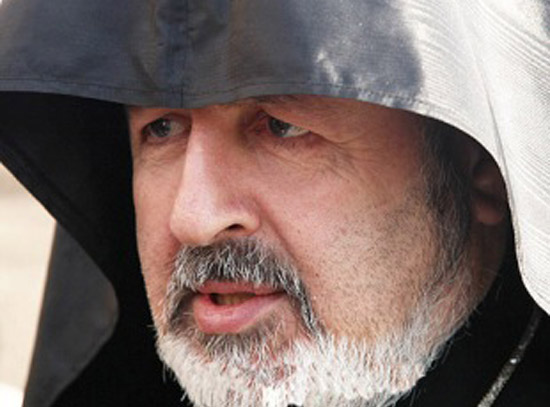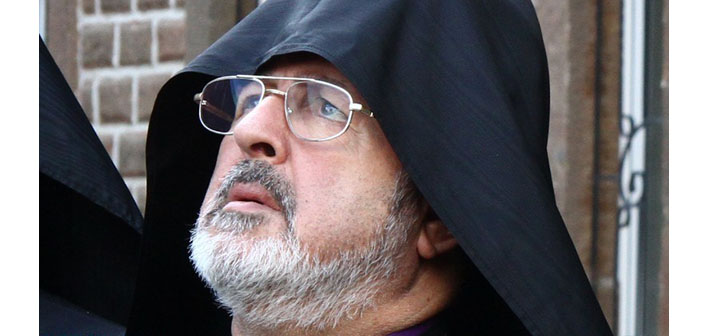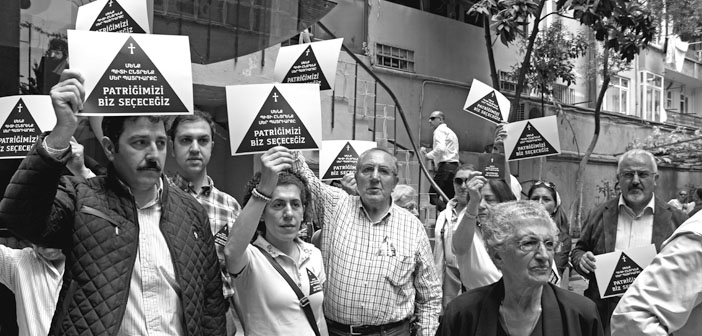Speaking at a symposium, Archbishop Aram Ateşyan, Deputy Patriarch of Turkey Armenians said “It is high time to stop the Armenian Question being used across international platforms as a wild card, as the Joker in a card deck”.
‘Symposium on Turkish-Armenian Relations in the 19th-20th Centuries’, organized by the Istanbul Metropolitan Municipality Department of Cultural and Social Affairs, the Istanbul University Faculty of Literature, the Istanbul Branch of Türk Ocakları [The “Turkish Hearths” Association] and the Istanbul University Institute of Atatürk Principles and History of Turkish Revolution was held at the Cemil Bilsel Conference Hall.
Describing the “negative events that took place in the sorrowful days of World War I” as the rupture in the relationship of two children who had grown up in the same cradle, Ateşyan said:
“World War I was not started by the Turks or the Armenians. In the same way that Armenians were not responsible of the stagnation, decline and fall of the Ottoman State. However it is a fact that the debilitation of the authority of the Ottoman State harmed Armenians.”
Referring to the April 24 condolence message President Recep Tayyip Erdoğan issued during his term as Prime Minister, Ateşyan described the message as “an expression of respect to the memories of Muslim and non-Muslim Ottoman citizens”.
“Foreign doctors who promise they will cure the disability…”
Ateşyan then went on to say:
“The two children of the Anatolia cradle are disabled today. This disability must be treated, these two disabled children must walk hand in hand, and in fact, run towards a healthy future. The doctors that will treat this disability are the conscientious, foresighted doctors who respect human rights and are free from prejudice on both the Turkish and Armenian sides. On the other hand, it is clear that foreign doctors who promise they will cure the disability and induce hope in the sides will aggravate the disability rather than heal it. Particularly, it is impossible to understand how parliaments set aside their primary task of legislation and assume the role of judge, and even decision makers on a topic such as history, in which they have no specialization. We need to ask those parliaments. If what you are doing is right, then why have you waited a century? And if it is wrong, why insist on it, why take the wrong as your model? It is high time to stop the Armenian Question being used across international platforms as a wild card, as the Joker in a card deck”.



.jpg)

